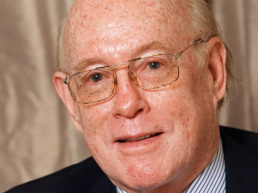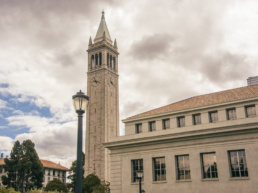Our guest this week is Gabriela Canavilhas. A former member of Parliament and Minister of Culture, consecrated pianist and cultural manager, she traveled from São Miguel in the Azores to the United States when she was a child, two years of her life that would mark her life. She is a member of FLAD’s Board of Trustees.
When only 7 years old she left São Miguel for New England, in the 1960s. By only living there for two years, it was enough for America to be part of who she is, of her tastes and interests.
She made the piano her life for almost two decades, recorded several records, played in some of the world’s major cities – including New York –, where she performed Portuguese music, until she became a culture manager. She was Director-General of Culture in the Azores, Minister of Culture between 2009 and 2011, and member of the Portuguese Socialist Party. She is a member of FLAD’s Board of Trustees.
In these Atlantic Talks, Gabriela Canavilhas talks about the close connection between the Azores Archipelago and the United States.
“It’s a telluric relationship, because it has to do with geography, it has to do with nature and it also has to do with tradition. There is a small difference also depending on the islands. The Azores are nine islands, and although they have a hegemonic culture, they also have the particularity of having nine small cultures, because over the centuries they have been very closed cultures within themselves, communication between them has only opened very recently.” – Gabriela Canavilhas.
The pianist and cultural manager explains that the American imaginary ends up being “infused in families”, especially on islands such as Faial and Corvo, because they are fundamental islands in communication interfaces and where immigration truly began.
“There is no child in the Azores who nowadays says “pastilha elástica”, it is “gama”, which comes from gum in American. There is a certain incorporation either in the language, in turning certain words into Portuguese, no one says “ténis” in the Azores, it is the sneakers, and the sweaters. (…) The Azorean immigrant usually doesn’t return, he goes and doesn’t come back. What does he do? He sends letters, he visits from time to time, doesn’t visit much, and creates a relationship of longing, an epistolary relationship, and it is usually the Azorean family who visit the US and returns.” – Gabriel Canavilhas.
On culture, her passion and where she made a career – artistic and political – Gabriela Canavilhas explains how American culture managed to impose itself in Europe, as it did in Portugal, to what was mostly Francophone, and how American capitalism ended up making a successful culture that in Europe tends to be financially deficient.
“They seized all these philosophical and aesthetic transformations of Europe and knew, thanks to the American academic clusters, to transform this into a new philosophical language and a new aesthetic and intellectual thought that is already of American origin. The distinctive mark of the United States is capitalism, and capitalism has managed to do what Europe has failed to do, which is to make a profit out of culture.” – Gabriel Canavilhas.
Don’t miss the new episode of the Atlantic Talks, now available where you usually listen to your podcasts. You can also find this episode in the links below.
Related Posts
March 25, 2025
Note of Condolence – Charles Buchanan (1934-2025)
March 24, 2025
Applications Open: FLAD/Saab Visiting Professor at UMass Lowell 2026
Portuguese professors can apply to…
March 17, 2025
FCT and FLAD sign new protocols with the University of California
The objective is to promote academic…


